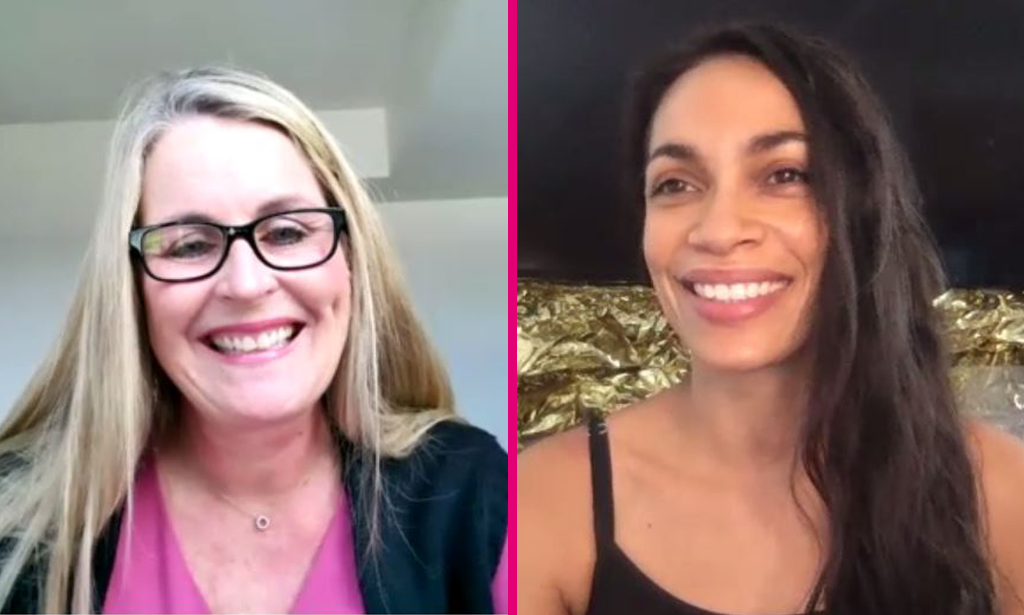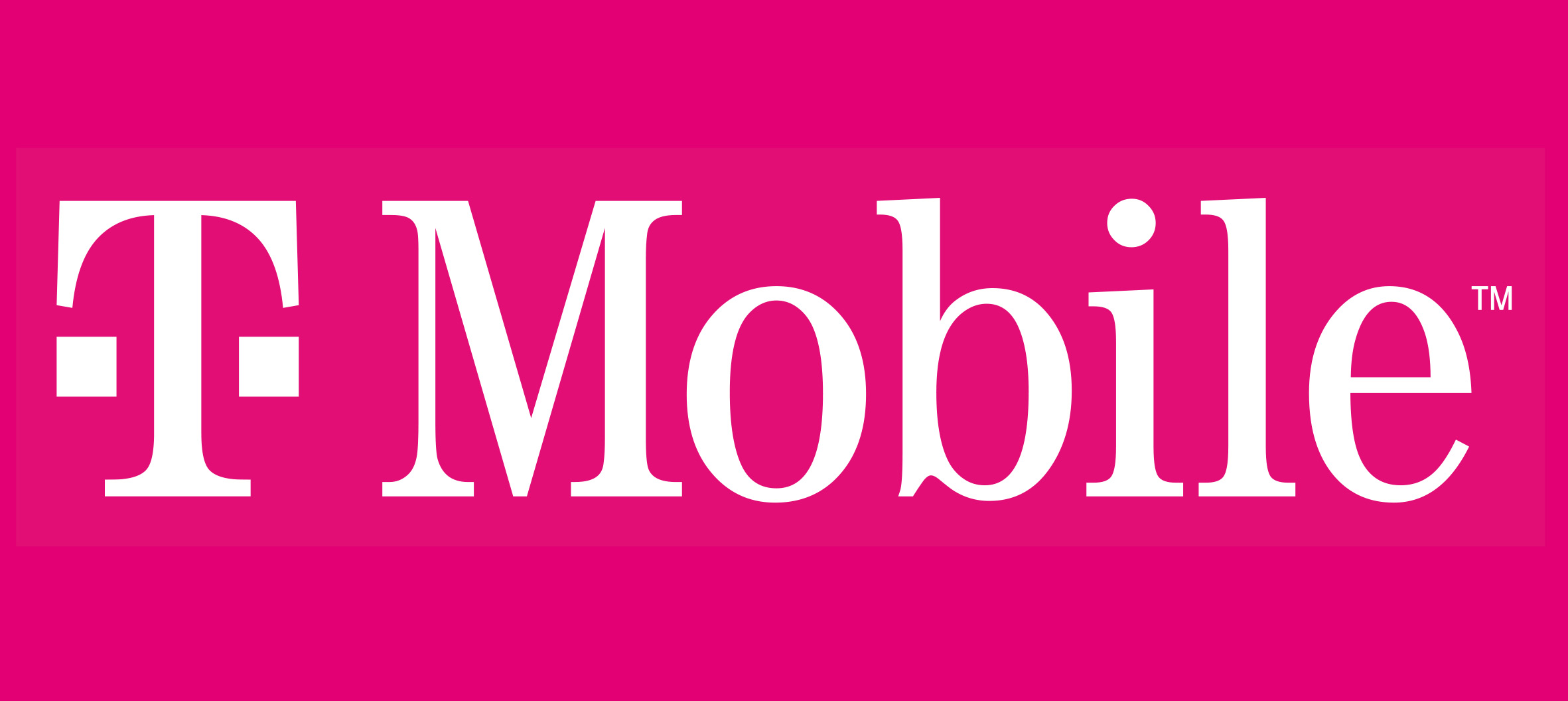Trailblazer Takeaways: Rosario Dawson on the Importance of “Making a Plan to Vote”
The actress and Voto Latino co-founder joined T-Mobile for its Talking with Trailblazers guest-speaker series in honor of Hispanic Heritage Month

From September 15 to October 15, T-Mobile observed Hispanic Heritage Month with a host of virtual celebrations, panel talks and educational events. It all culminated last week with a blockbuster Talking with Trailblazers, the company’s ongoing internal guest-speaker series, with multi-hyphenate actor-activist-philanthropist Rosario Dawson, who joined from her New Jersey home to speak with EVP and Chief Human Resources Officer Deeanne King with a few thousand employees in attendance.
Dawson is best-known for portraying hard-nosed heroes in action movies like Men in Black, Sin City and Zombieland: Double Tap, but she’s also been a staunch supporter of youth and minority equity for years. She’s the co-founder of Voto Latino, a T-Mobile partner organization that encourages voting within the Latinx community, and serves on the board of V-Day, an anti-violence nonprofit. She advocates for neighborhood social services with the Lower East Side Girls Club in Manhattan.
In a far-reaching conversation, Dawson spoke about the importance of both being informed of the past and engaged in the future, as well as her own journey being of Latinx mixed-race heritage. Here are five key takeaways.
Knowing about our diverse history makes us stronger as individuals and as a nation.
“It’s so remarkable to me to think about all of the people that had to exist and survive and get through all the different histories that I’ve learned about to create my journey and make it possible for me to be here. We’re doomed to repeat the mistakes of the past if we don’t learn from them. There’s incredible pride and beauty that can be sourced in history, and you can be inspired by looking to the past.
“We don’t get raised with that enough, especially as women. We’ve been written out of so much of history. I recently did a podcast on the suffrage movement and from whatever I was taught about it, you’d think that no Native women were part of it. Meanwhile, the Haudenosaunee tribe was the reason we have our three branches of government, and those women had been voting within their tribal government for years. And all of the women of color who came together to help march and to establish that 19th Amendment were robbed of the ability of exercising their vote for decades later. I’m always excited and grateful to source that history to better inform my present and my future decisions.”
But when it comes to voting, it’s also important we are living in the moment.
“With Voto Latino, which we created in 2004, we’ve really been able to meet the moment, which has been really powerful and very exciting — seeing Latinos become the largest minority population in the country and going, ‘This is going to be really, really important and will continue to be really important for a very long time.’The discrimination and the issues that we face, everything from what’s happening on our borders right now to Latinos often being the first ones to get hurt on the job and the last ones to get compensated, shows we have a long way to go to have our voices be heard and considered in policymaking.”
The first step to gaining political voice is to make yourself a participant.
“A lot of people feel like they’re not even considered in the entire political process and don’t see themselves in it. That’s one of the things that really needs to be passed down: For folks to vote, you need to have it be a big part of your identity. You need to be a ‘voter.’ That’s why we talk so much about making a plan to vote — because if you don’t make a plan to do it, you’re more than likely not going to. This happens with almost anything that you put on your goal list. If you don’t actually put it in there and prioritize it and make a date with it, and be committed, then it’s easy for life to sweep you up.
“The folks who were creating our country, they were young, a lot of them. We forget that history looking at Civil Rights movements and other spaces where young people are the leaders. For some reason, the activism will be there but not necessarily the follow-up with voting. We’re trying to connect the dots better and seeing a surge of interest, because for young people in the Latin community, it’s about the issues. It’s not necessarily about the political party and it’s not necessarily about the political candidate. It’s about the economy, it’s about climate change, it’s about healthcare. Those are the kinds of people we want voting because they’re concerned with real-life, present-day issues and their life experience is what informs them.
“It doesn’t matter if you only have a high school degree, it doesn’t matter if you’d be the first person in your family voting. Because when I talk to you, I hear about what you’re going through in your day-to-day, and your concerns, and your love for your family and your community. Those values need to be injected into our political process, and we’re making sure to let people know that they’re wanted, needed, necessary and vital.”
Always recognize the humanity in people — especially when you disagree with them.
“I’ve played a lot of different kinds of characters — everything from the girlfriend role to a drug addict and stripper like in Rent. What I’ve always tried to do, even when I played more stereotypical-type roles, is bring as much humanity to them as possible. With stereotypes, we create people as a monolith and that’s wrong. Even when we’re talking about how many people have passed from COVID, it just becomes this number. We forget that those are real people and families, and whole communities that are being devastated. I think the problem with stereotypes is that they dehumanize people and we always have to check in with ourselves.
“I read a really great book about this called The Anatomy of Peace. It asks, are we treating people as objects or are we treating them as human beings? Because we can be at war with people, we can be fighting and in complete disagreement, but are you doing it with dignity and respect? You might vehemently disagree with this person, but you’re not going to shame them. You’re not going to put them down. You’re not going to degrade them. You’re not going to be abusive towards them. Because you still see their humanity and you recognize it even if you're in conflict. I think that’s something we’ve lost. We immediately just make someone other, and other is not worthy of respect or kindness or care or love. And that is just wrong.”
Change begins when you engage on a local — and personal — level.
“You can laugh through your tears and be engaged in the voting process and know that if you figure it out locally, then you’re doing your part. Just as doing your self-care helps you to better show up in your family and your friendships and at your work, it’s the same thing if you engage in your community. What’s going on at the local library? What’s happening with the school mentorship program? There are so many issues going around with food scarcity because people are choosing right now between paying their rent or having some food on the table. With all these kids learning online, do they have the resources that they need and the proper WiFi? Do they have the computer technology?From homelessness to mental health, people are really struggling in a lot of ways. Any and every little bit of help or kindness that you can offer could be helping them."

